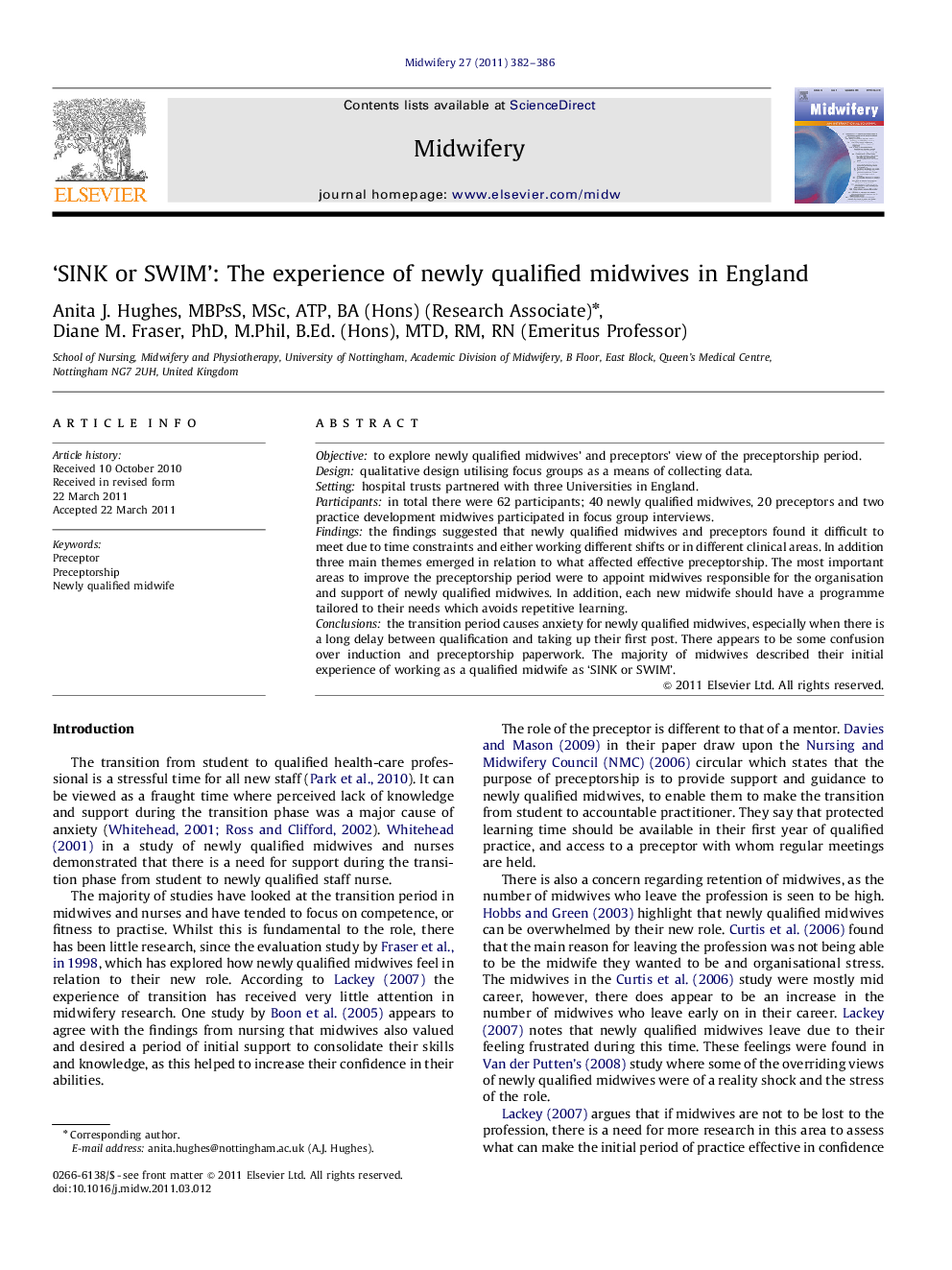| Article ID | Journal | Published Year | Pages | File Type |
|---|---|---|---|---|
| 1085063 | Midwifery | 2011 | 5 Pages |
Objectiveto explore newly qualified midwives' and preceptors' view of the preceptorship period.Designqualitative design utilising focus groups as a means of collecting data.Settinghospital trusts partnered with three Universities in England.Participantsin total there were 62 participants; 40 newly qualified midwives, 20 preceptors and two practice development midwives participated in focus group interviews.Findingsthe findings suggested that newly qualified midwives and preceptors found it difficult to meet due to time constraints and either working different shifts or in different clinical areas. In addition three main themes emerged in relation to what affected effective preceptorship. The most important areas to improve the preceptorship period were to appoint midwives responsible for the organisation and support of newly qualified midwives. In addition, each new midwife should have a programme tailored to their needs which avoids repetitive learning.Conclusionsthe transition period causes anxiety for newly qualified midwives, especially when there is a long delay between qualification and taking up their first post. There appears to be some confusion over induction and preceptorship paperwork. The majority of midwives described their initial experience of working as a qualified midwife as ‘SINK or SWIM’.
